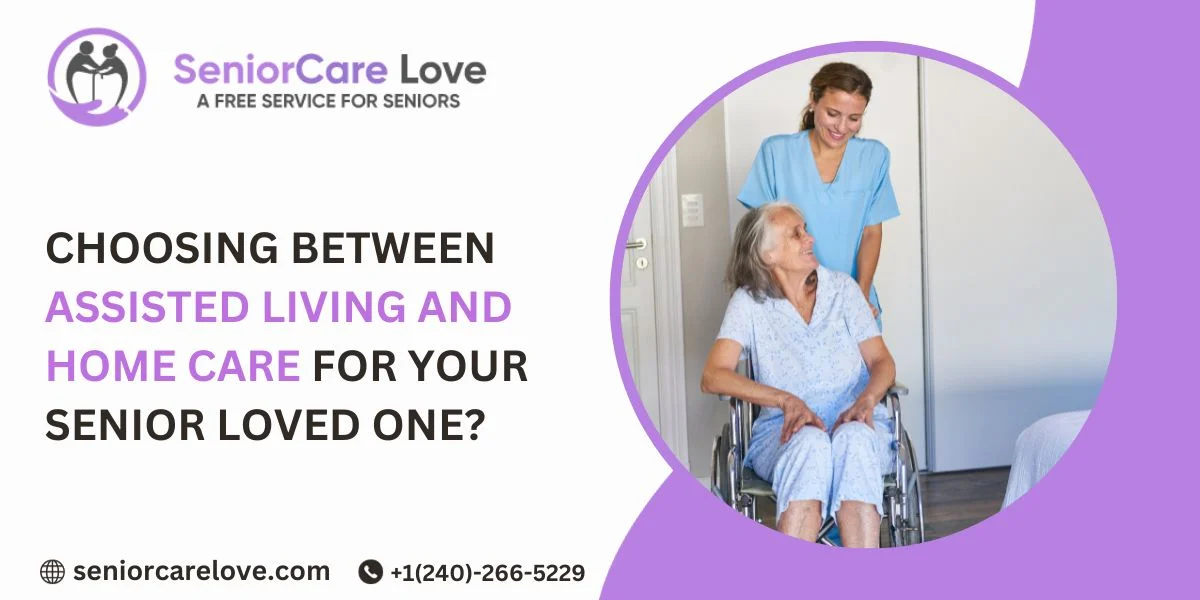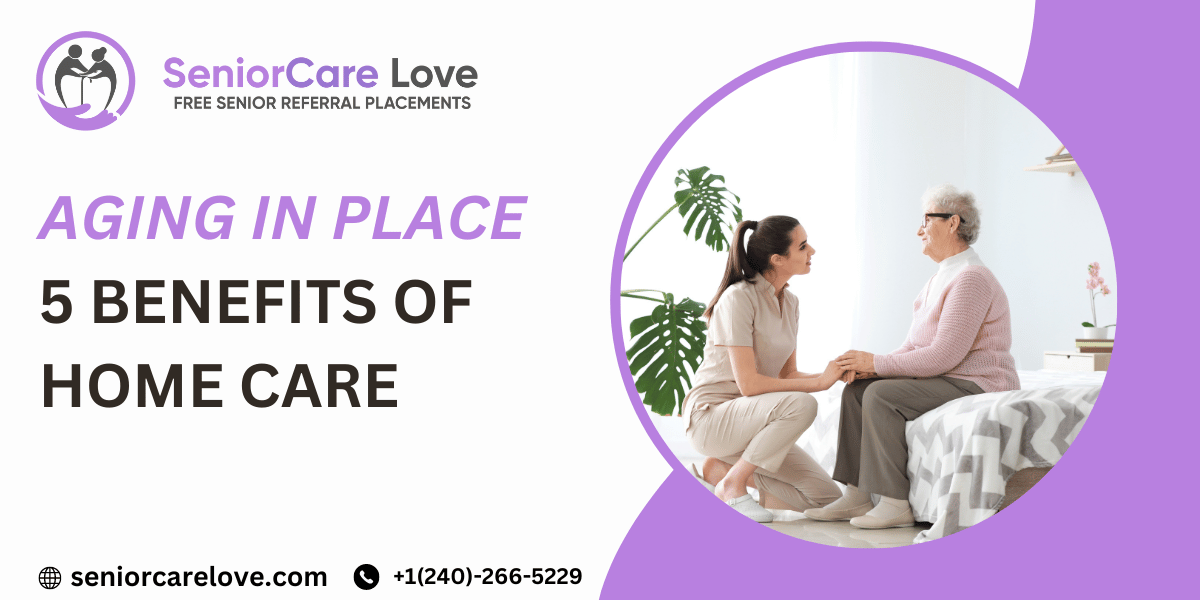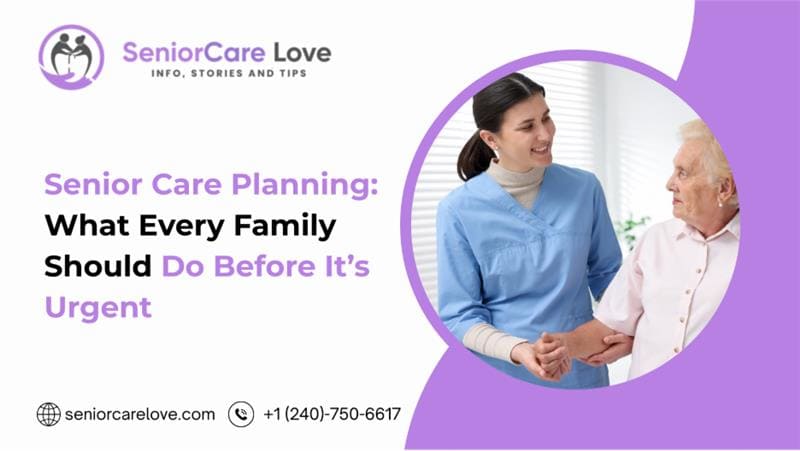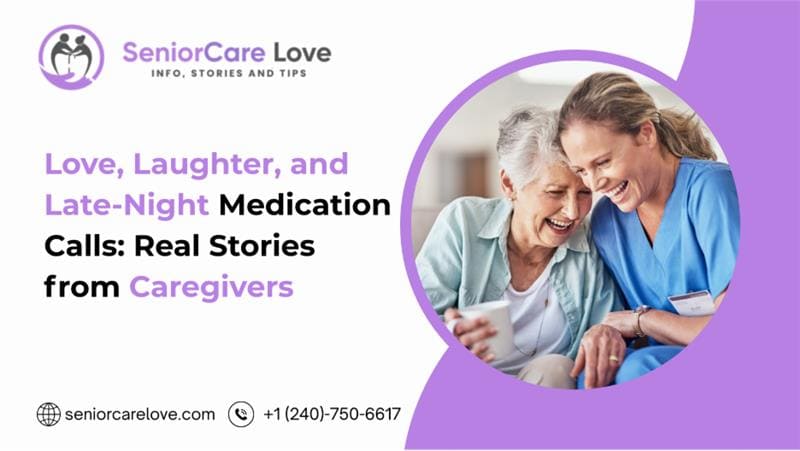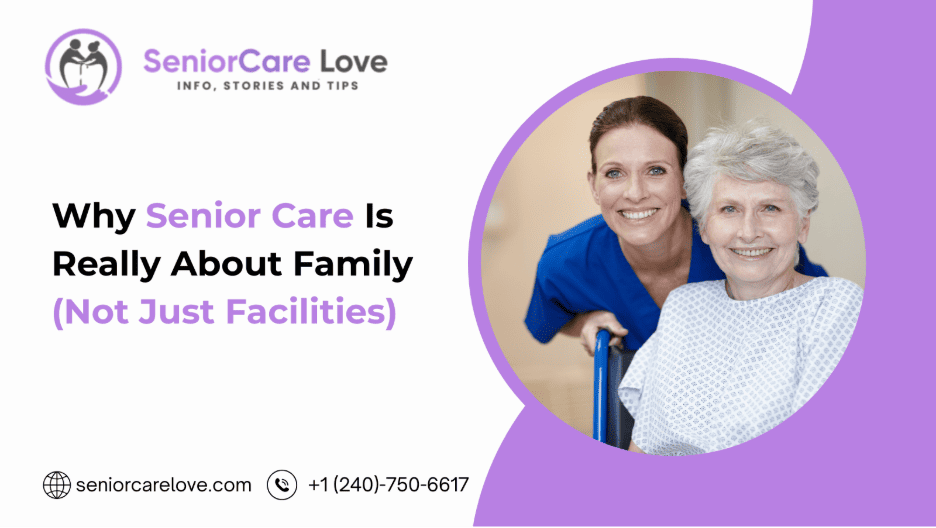There’s a moment. Every family hits it.
It’s somewhere between noticing a pile of unopened mail on the counter and realizing Mom hasn’t changed her sweater since Election Day (2022 edition). You feel it before you say it—maybe it’s time for help.
But how do you know? What counts as “normal aging” and what’s a giant waving flag that says “Call in reinforcements, and possibly also a cleaning service”?
At Senior Care Love, we’ve walked this road with hundreds of families across DC. Some were ready. Some were very not. All of them had one thing in common: they weren’t sure when “I’ve got it” turned into “I need help.”
So, let’s talk about it—honestly, lovingly, and with just enough humor to get you through it without crying into your tax records.
1. The House Starts to Look Like a Time Capsule
We’re not talking “a little dusty.” We’re talking about dishes in the oven, expired milk that could legally be considered cheese, and a growing population of prescription bottles next to a 1997 Reader’s Digest.
If your loved one’s once-immaculate home has transformed into a museum of well-intended clutter, this could be a sign that:
- Chores are physically too hard
- Memory lapses are becoming more common
- They’re overwhelmed and avoiding tasks
And sure, we’ve all had laundry sit in the dryer for a week—but if your parent can’t remember how the dryer works, it’s time to investigate.
2. Medications Are Becoming a Game of Chance
Remember the pill organizer you lovingly bought? The one with cheerful compartments labeled “Monday AM” through “Sunday PM”? If it now functions more as a tic-tac dispenser, this is your sign.
Some red flags:
- Missed doses or accidental double-dosing
- Expired medications still being used
- Confusion about what pills are for
- Refusal to take meds without clear reason
Medication mismanagement can lead to hospital visits—and no one wants to visit GW ER at 2 a.m. unless they absolutely have to.
3. Hygiene Has… Shifted
This one’s tricky—because pride often hides what’s happening.
You might notice:
- Unwashed hair or body odor
- Wearing the same clothes for days
- Avoiding showers due to fear of falling
- Neglected dental care
We once had a client who hadn’t bathed in 10 days but insisted she was “just conserving water because DC rates are outrageous.” (Fair point, but still.)
Declining personal hygiene can signal mobility issues, cognitive decline, or even depression. It’s not about judgment—it’s about safety and dignity.
4. Meals Go From Gourmet to “Microwave Mystery”
If your loved one once baked pies from scratch and now survives on saltines and half a banana, we have questions. Nutrition plays a massive role in aging well—and it’s often one of the first things to slip.
Look for:
- Empty fridge or only expired items
- Loss of appetite or unexplained weight loss
- Reliance on processed, high-sodium foods
- Missed meals (or doubling meals accidentally)
Pro tip: Check the pantry. If it’s full of dusty canned beets and nothing else, it might be time for a conversation.
5. Isolation Becomes the Default
Humans are social creatures—even introverted, crossword-loving ones. If your loved one has stopped:
- Attending church, community events, or clubs
- Talking to neighbors
- Answering phone calls regularly
- Leaving the house at all
They may be isolating due to fear, cognitive issues, or simply because getting out feels hard.
Social isolation can accelerate cognitive decline and lead to depression—two things we like to avoid whenever possible.
6. You Notice Falls or “Almost” Falls
Here’s the thing: seniors rarely admit when they fall.
You might hear:
“Oh, I just tripped over the rug.”
“I was tired, so I sat on the floor—on purpose.”
“The cat knocked me over.” (There is no cat.)
Falls—or near-falls—are not just bad luck. They’re signs that mobility, balance, or strength is deteriorating. And yes, even one fall is a big deal. According to the CDC, falls are the leading cause of injury among older adults.
If you see new bruises, scuffed furniture, or they suddenly refuse to use the stairs—ding ding.
7. Cognitive “Quirks” Are Increasing
We all lose our keys. But if your loved one:
- Gets lost in familiar places
- Repeats the same story five times in one conversation
- Can’t follow a basic recipe they’ve used for years
- Accuses people of stealing things that are just misplaced
- Forgets appointments or events altogether
—then we may be in early cognitive decline territory.
This doesn’t automatically mean Alzheimer’s, but it does mean they need support to stay safe, engaged, and independent.
8. Your Gut Is Screaming (Even if Your Brain Isn’t Sure)
Let’s be honest—you know when something’s off. even if you can’t explain it. even if it doesn’t feel “bad enough.” even if your parent seems to be holding it together (mostly).
If you feel anxious every time the phone rings or you’re secretly dreading holidays because of what you might find—it’s time to trust that feeling.
Your gut is a highly trained, panic-sensitive radar. It has gotten you through every awkward school play and one-sided family reunion. It will get you through this, too.
A Real Family Story: The Jeffersons of Petworth
Let’s tell you about one of our families (names changed, sass levels preserved).
The Jeffersons were a lively trio: 82-year-old matriarch Gloria, her adult son Ron, and their extremely judgmental cat, Pickles.
Ron called us when Gloria left a burner on and melted an entire tea kettle. He brushed it off as “a fluke,” but when he visited the next day, she didn’t recognize her own spice rack. Then he found her bank statements in the fridge.
We matched Gloria with an in-home care team that started at 12 hours a week—just enough to help with cooking, meds, and safety. Within a month, her anxiety decreased, her weight stabilized, and she started singing along to Aretha Franklin again.
The takeaway? It doesn’t have to be dramatic. Sometimes, a little support goes a long way.
Final Thought: Waiting Rarely Makes It Easier
At Senior Care Love, we’ve seen both sides. Families who acted early and found peace—and families who waited until after a fall, a hospitalization, or a midnight panic call.
There’s no shame in either path. But here’s what we know: waiting rarely makes the conversation easier. Or the options better.
Getting help isn’t a failure. It’s an act of love.
It says: “I see what’s happening, and I care enough to do something before it becomes an emergency.”
And if that help comes wearing scrubs, carrying a cheerful tote bag, and knowing just how to coax a smile out of Dad during his morning meds? Even better.
Need guidance, resources, or a totally free conversation with someone who gets it?
We’re here. No pressure. No judgment. Just love. (And maybe a clipboard.)
💙 Reach out to Senior Care Love — Because when home care starts at the right time, everything feels a little lighter.
FAQs: Is It Time for Senior Home Care?
Q: How do I start the conversation with my loved one?
A: Gently. Use “I” language. Focus on your concerns and desire to help. Emphasize maintaining independence—not losing it.
Q: What’s the difference between home care and home health?
A: Home care helps with daily tasks (meals, hygiene, errands). Home health involves medical professionals (nurses, therapists). Many families use a blend of both.
Q: Can we start small with just a few hours a week?
A: Absolutely. In fact, we recommend it. Starting slow builds trust—and allows everyone to adjust.
Q: What if my parent refuses any help at all?
A: Not uncommon. Try a “trial run.” Frame it as help for you, not them. Or bring in a third-party professional to assess and explain the benefits.
Q: Is home care affordable?
A: It depends. In DC, hourly rates range from $28–$40. Many families use VA benefits, long-term care insurance, or Medicaid waivers to offset costs.


